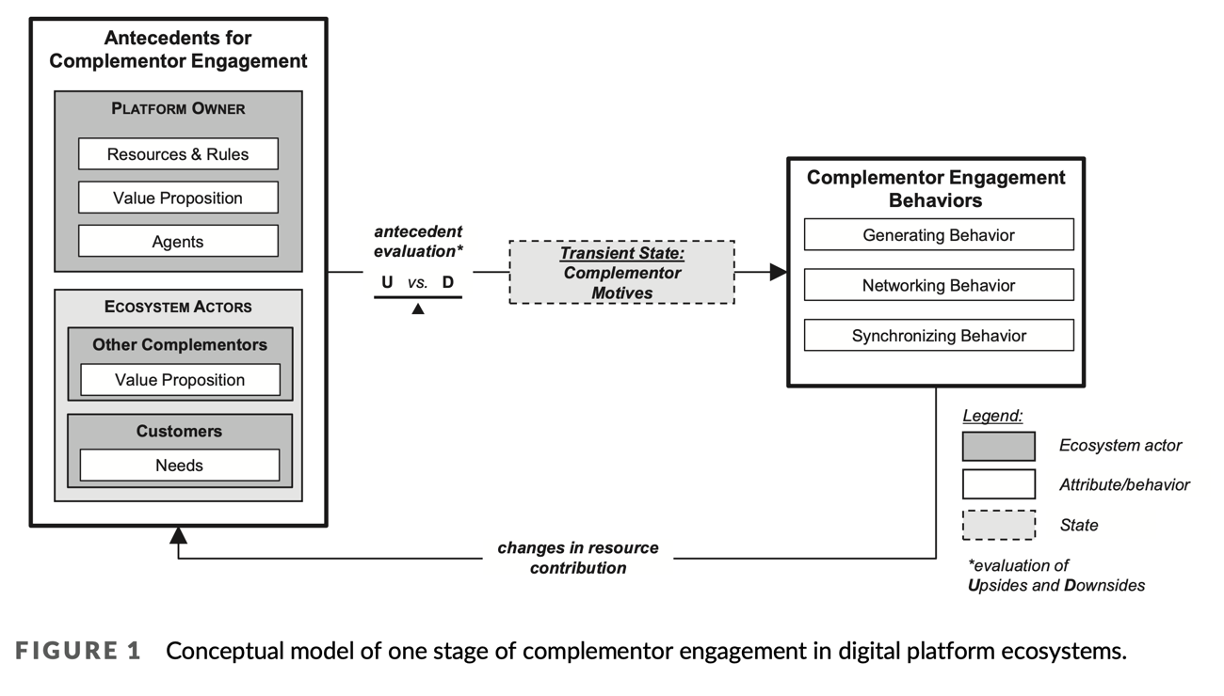Sustaining complementor engagement in digital platform ecosystems: Antecedents, behaviours and engagement trajectories
Unveiling the Dynamics of Complementor Engagement
Our latest research introduces a novel conceptual framework that elevates the role of complementor engagement in digital platform ecosystems. This framework enriches the academic discourse and provides actionable insights for platform governance, particularly in balancing cooperative and competitive strategies for both short-term and long-term effects.
Utilizing an embedded case study, our study incorporates 30 interviews with complementors in enterprise software platform ecosystems. The cornerstone of our research is the conceptual framework we introduce. The framework identifies key antecedents influencing complementor engagement, such as platform resources and rules, value proposition, or customer needs. These antecedents are evaluated by complementors, leading to transient states that describe their motives. Based on these evaluations, complementors exhibit specific behaviors like generating, networking, and synchronizing. These behaviors contribute resources to the platform ecosystem and influence the environment, thereby affecting antecedents and evaluations in later stages (see Figure 1).
From a theoretical perspective, the framework integrates actor and stakeholder engagement theories toward complementor engagement. Our paper defines complementor engagement as “a complementor's state-based, partly volitional resource contribution in its interactions, activities and relationships in a digital platform ecosystem” (Engert et al. 2023, p. 5). The framework provides a nuanced understanding of the dynamic nature of complementor engagement. It allows, for example, to explore how cooperative and competitive governance mechanisms interact to influence complementor engagement over short-term and long-term periods. This fills a significant gap in the existing literature, which has often treated these governance mechanisms in isolation.
For practitioners, our conceptual framework serves as a guide for effective platform governance. It suggests that a nuanced understanding of complementor engagement can inform both tactical and strategic decisions. Specifically, the framework highlights the need for a balanced approach between cooperative and competitive governance to sustain complementor engagement, thereby contributing to the platform's overall competitiveness and longevity.
Are you interested in how our conceptual framework can guide your governance strategies and sustain complementor engagement in digital platform ecosystems?
Read the following paper: https://onlinelibrary.wiley.com/doi/abs/10.1111/isj.12438
Engert, M., Evers, J., Hein, A., & Krcmar, H. (2023). Sustaining complementor engagement in digital platform ecosystems: Antecedents, behaviours and engagement trajectories. Information Systems Journal.



